Publications
Articles, publications, books, tools and multimedia features from the U.S. Institute of Peace provide the latest news, analysis, research findings, practitioner guides and reports, all related to the conflict zones and issues that are at the center of the Institute’s work to prevent and reduce violent conflict.
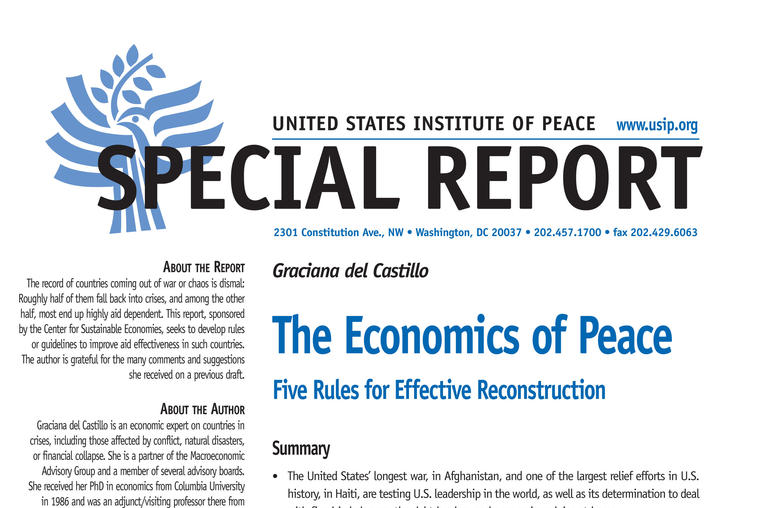
The Economics of Peace
Efforts to rebuild economies in postconflict zones around the world underscore a central lesson: development practices that work in peaceful countries often don’t apply to countries in transition.
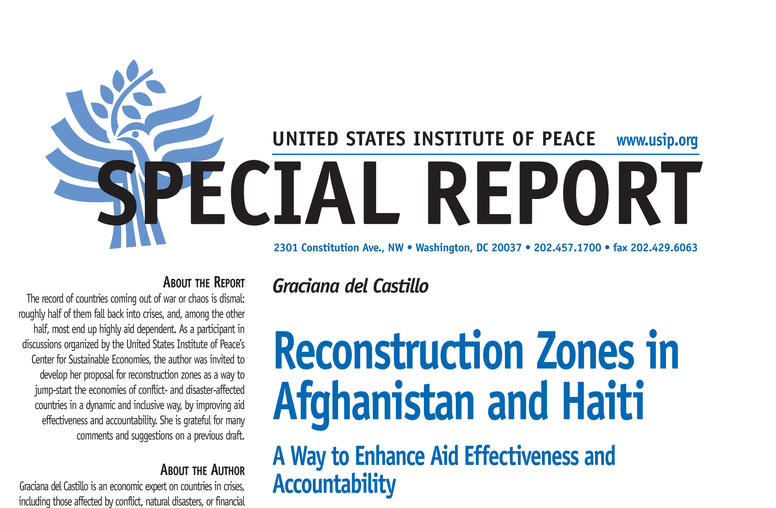
Reconstruction Zones in Afghanistan and Haiti
The record of countries coming out of war or chaos is dismal: roughly half of them fall back into crisis. Among the other half, most end up highly aid dependent. The author of this Special Report was invited to develop her proposal for reconstruction zones as a way to jump-start the economies of conflict- and disaster-affected countries in a dynamic and inclusive way, by improving aid effectiveness and accountability.
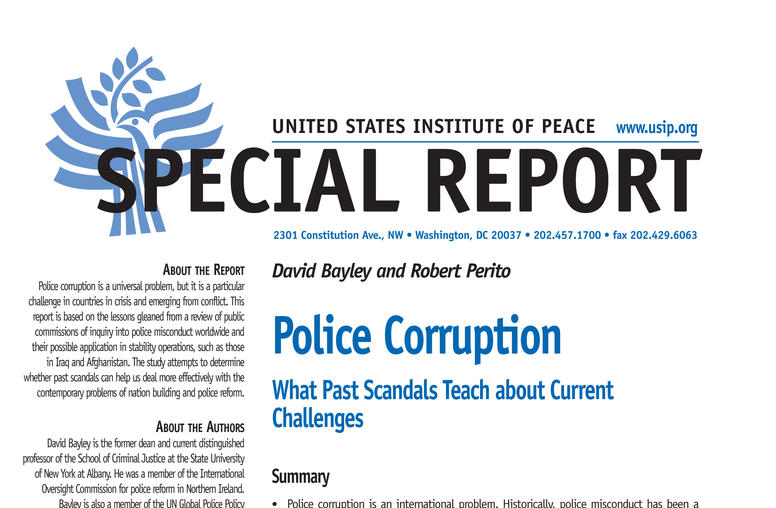
Police Corruption
Police corruption is a universal problem, but it is a particular challenge in countries in crisis and emerging from conflict. This report is based on the lessons gleaned from a review of public commissions of inquiry into police misconduct worldwide and their possible application in stability operations, such as those in Iraq and Afghanistan.
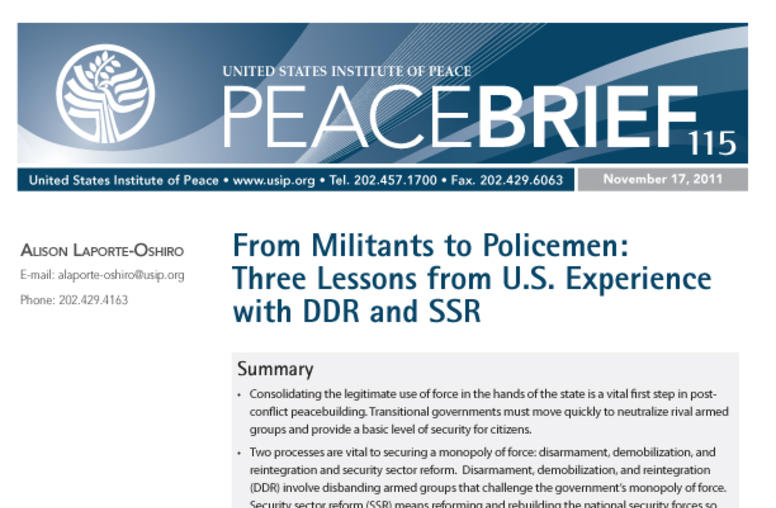
From Militants to Policemen: Three Lessons from U.S. Experience with DDR and SSR
Consolidating the legitimate use of force in the hands of the state is a vital first step in post-conflict peacebuilding. This USIP Peace Brief analyzes two processes that are vital to securing a monopoly of force: disarmament, demobilization, and reintegration (DDR) and security sector reform (SSR).
Universities for Ushahidi
The U4U training program brings young people from conflict zones around the world to train them in the use of crowdsourced mapping tools like Ushahidi as well as in the skills of conflict management, helping them address community needs in-country, train others, and join a growing community of global crisis mappers and technology-enabled peacebuilders.
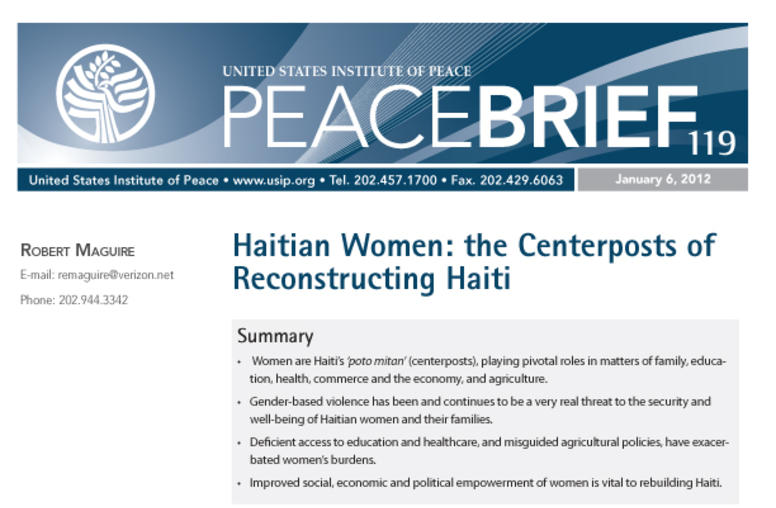
Haitian Women: The Centerposts of Reconstructing Haiti
Since Haiti’s devastating January 2010 earthquake, women have played a vital role in their country’s response to the catastrophe. This Peace Brief, by USIP's Robert Maguire, discusses the pivotal roles women are playing in matters of family, education, health, commerce and the economy, and agriculture.
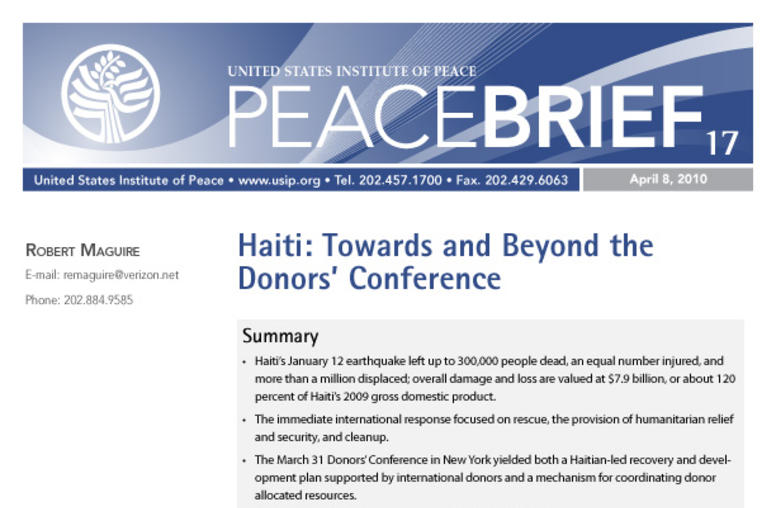
Haiti: Towards and Beyond the Donors’ Conference
Haiti’s January 12 earthquake left up to 300,000 people dead, an equal number injured, and more than a million displaced; overall damage and loss are valued at $7.9 billion, or about 120 percent of Haiti’s 2009 grian relief and security, loss domestic product. The immediate international response focused on rescue, the provision of humanitarian and cleanup.
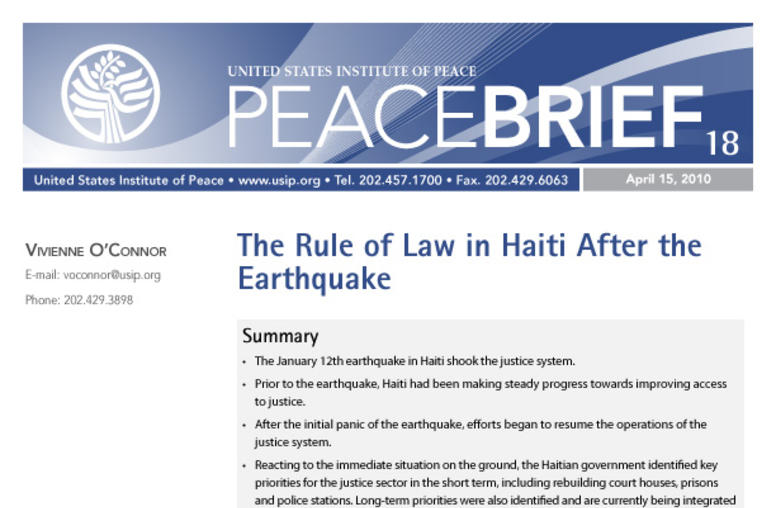
The Rule of Law in Haiti After the Earthquake
The January 12th earthquake in Haiti shook the justice system. Prior to the earthquake, Haiti had been making steady progress towards improving access to justice.
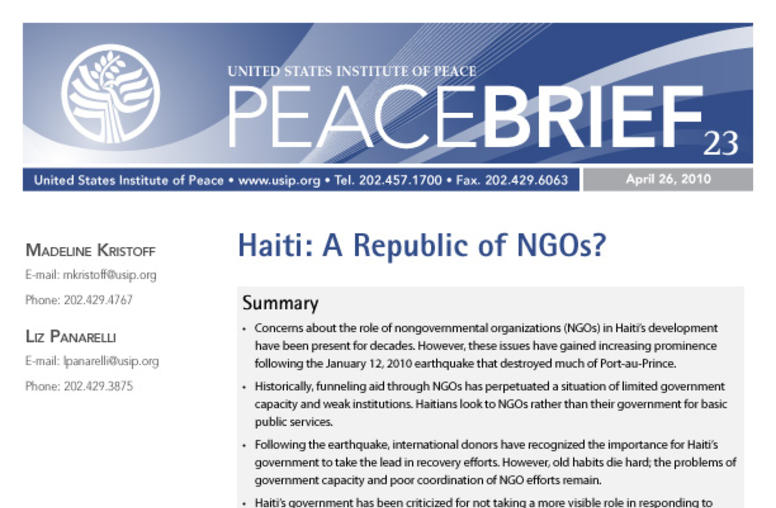
Haiti: A Republic of NGOs?
Concerns about the role of nongovernmental organizations (NGOs) in Haiti’s development have been present for decades. However, these issues have gained increasing prominence following the January 12, 2010 earthquake that destroyed much of Port-au-Prince.
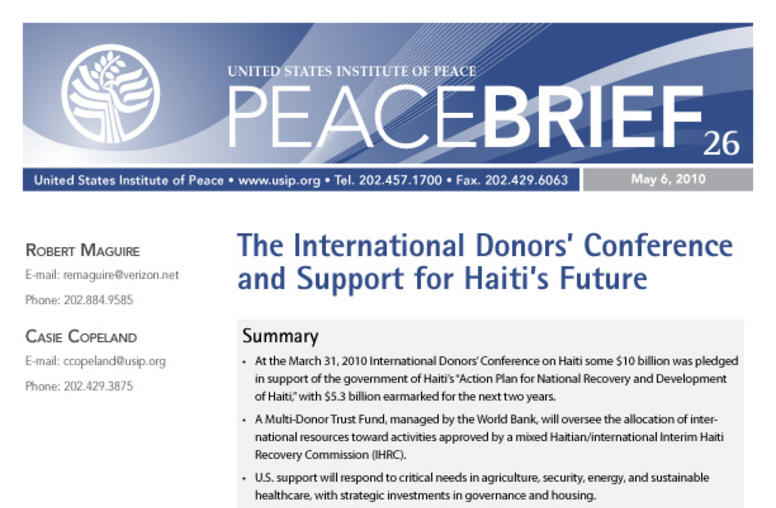
The International Donors’ Conference and Support for Haiti’s Future
At the March 31, 2010 International Donors’ Conference on Haiti some $10 billion was pledged in support of the government of Haiti’s “Action Plan for National Recovery and Development of Haiti,” with $5.3 billion earmarked for the next two years. A Multi-Donor Trust Fund, managed by the World Bank, will oversee the allocation of international resources toward activities approved by a mixed Haitian/international Interim Haiti Recovery Commission (IHRC).